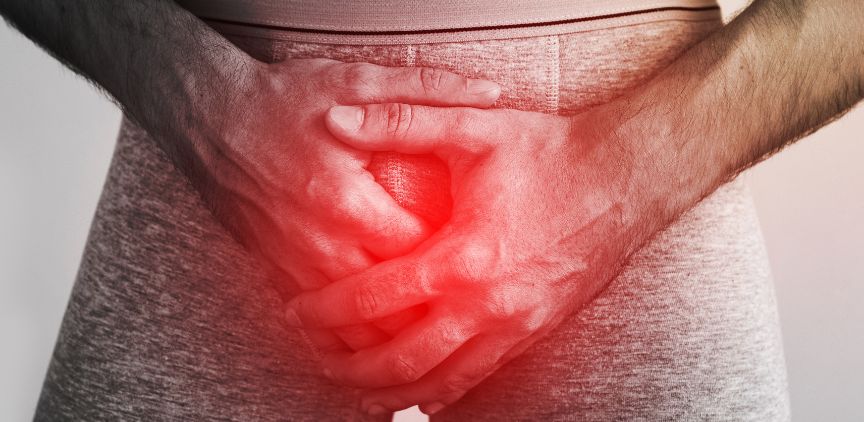Find Some Comfort with Effective Supplements
Peyronie’s disease is a localized, non-cancerous condition that affects the penis, leading to undesirable symptoms. It’s caused by scar tissue buildup (plaque) under the skin of the penis that leads to curvature of the penis. While a curved penis is not always a problem, in some cases, Peyronie’s disease can cause significant curvature, loss of length and girth, and penile pain, making it difficult to get and/or maintain an erection and may prevent some men from engaging in sex altogether. Although some men may need surgery to correct the curvature of the penis, various alternative, non-surgical treatments are available, including vitamins and supplements. This article will discuss some of the best supplements for Peyronie’s disease treatment.
Best Supplements and How They Work to Help Peyronie’s Disease
The main role of vitamins and supplements in the treatment of Peyronie’s disease is to prevent the condition from worsening, not cure the condition. Below we’ll discuss some of the best supplements and how they help with Peyronie’s disease treatment.
Coenzyme Q10
Research has shown that intake of 300mg daily of Coenzyme Q10 during the acute phase of the disease can lead to a moderate decrease in the size of the penile plaque, reduce penile curvature, and can help prevent disease progression. Side effects of coenzyme Q10 include nausea, vomiting, abdominal pain, loss of appetite, diarrhea, headaches, dizziness, fatigue, itching, rash, irritability, and agitation.
Potassium Para-aminobenzoate (POTABA)
Potassium Para-aminobenzoate (POTABA) is known for its anti-inflammatory and antifibrotic properties. It’s believed to be effective due to a reduction in collagen formation by way of decreasing serotonin levels, increasing monoamine oxidase activity, and inhibiting fibroblast glycosaminoglycan secretion. A 2005 study found that orally taking 3g of POTABA four times per day for 12 months significantly improved plaque size. Additionally, they found that it may help to prevent the progression of penile curvature as individuals in the study's placebo group reported worsening of their penile curvature. Side effects of POTABA include diarrhea, gastrointestinal distress, hypoglycemia, and acute hepatitis.
There is limited evidence to support the following supplements for Peyronie’s disease treatment:
Acetyl-l-carnitine
Acetyl-l-carnitine allows for decreased free radical formation during cell stress. One study published in 2001 found that acetyl-l-carnitine was more effective than a commonly prescribed medication, tamoxifen, for reducing pain and preventing disease progression. This study found that acetyl-l-carnitine decreased the curvature of the penis and reduced plaque size. However, another study published in 2007 found no significant improvement in pain, the curvature of the penis, or plaque size, so the evidence is conflicting on this particular supplement. Side effects of acetyl-l-carnitine include gastrointestinal distress, hypotension, and seizures.
Vitamin B Complex
Vitamin B Complex is made up of 8 B vitamins, including B1 (thiamine), B2 (Riboflavin), B3 (Niacin), B5 (Pantothenic acid), B6 (Pyridoxine), B7 (Biotin), B9(Folate), and B12(Cobalamin). Vitamin B complex has anti-inflammatory properties that may help to relieve pain and discomfort associated with Peyronie’s disease. Side effects of vitamin B complex include rash, itching, stomach cramps, vomiting, dizziness, high blood sugar levels, and breathing difficulties.
Vitamin E
Vitamin E is a fat-soluble antioxidant that inactivates free radicals to limit oxidative stress and encourages wound healing. Various placebo-controlled studies have shown that vitamin E has no significant effects on pain, degree of penile curvature, size of plaques, or the ability to have sexual intercourse. However, while there is a lack of evidence to support the efficacy of vitamin E for the treatment of Peyronie’s disease, it’s commonly prescribed, sometimes in combination with other treatment options. Common side effects of vitamin E include nausea, vomiting, diarrhea, headache, dizziness, and an increased risk of cerebrovascular events and prostate cancer.
Omega-3 Fatty Acids
Omega-3 fatty acids have anti-inflammatory properties that may help to relieve pain and discomfort associated with Peyronie’s disease, although the research supporting this is limited. Side effects of omega-3 fatty acids include gastrointestinal distress and fishy breath.
Conclusion
Peyronie’s disease is a localized condition affecting the penis resulting in penile curvature, loss of length and girth of the penis, and difficult and possibly painful erections. Peyronie’s disease rarely goes away on its own, but surgical treatment isn’t always necessary. While the research supporting the use of vitamins and supplements for the treatment of Peyronie’s disease is limited, the addition of these natural remedies may help decrease pain and prevent the progression of the disease in some people with fewer side effects and complications compared to surgery.
Article Resources
- NIH – Oral Therapy for Peyronie’s Disease, Does it Work?
- Healthline – Understanding ED: Peyronie’s Disease
- Everydayhealth – The Consumer’s Guide to Non-Surgical Treatment for Peyronie’s Disease
- International Andrology – Peyronie’s Disease
- BJUI - Acetyl-l-carnitine vs Tamoxifen in the Oral Therapy of Peyronie's Disease: A Preliminary Report
- Mayo Clinic – Coenzyme Q10
